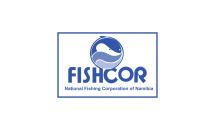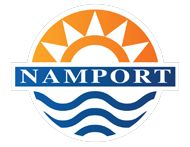Welcome To Our Site
Globally, fisheries observer programs play an important role in either collecting scientific and biological data and/or report on compliance with fisheries legislation.
In Namibia, the Observer Programme, as part of the Ministry Fisheries and Marine Resources (MFMR), the Monitoring, Control and Surveillance (MCS) programme, was established in 1991. The programme was based in both Walvis Bay and Lüderitz, Namibia’s only two harbours. The (MCS) programme had two components vis-à-vis the land-based inspectorate, responsible for control and surveillance, and the observer programme, the monitoring arm.
Since its inception the Observer Programme deployed around 200 Observers (with around 40 females) to sea on board fishing vessels, from both stations in Walvis Bay and Lüderitz, covering about seven different fisheries types – ranging from trawl-, line- to ring and trap fisheries.
Initially, the objective of the Observer Programme was to monitor compliance with the fisheries legislation. However in the mid 90’s the programme was extended to incorporate the collection of biological and scientific data.
The Kenya Fisheries Service Exchange Visit to Namibia
The Fisheries Observer Agency (FOA) hosted a delegation of Senior Directors of Fisheries from Kenya Fisheries Service (KeFS) on a study visit.
The visit was facilitated by the United Nations Office on Drug and Crime (UNODC), under the Framework of the FishNET II Project, funded by the Norwegian Agency for Development Cooperation (Norad).
The exchange visit aimed at sharing experiences and exploring new viewpoints and approaches for the fisheries observer program and Monitoring, Control and Surveillance (MCS).
Key areas for collaboration include training and development, exchange programs and expertise sharing. The goal is to pinpoint strengths and gaps and offer recommendations for enhancing KeFS Observer Program.
Both FOA and KeFS are committed to promoting the African Union (AU) Agenda 2063, ‘The Africa We Want’ and to address Illegal, Unreported and Unregulated (IUU) fishing, which is a global menace.
The Kenyan delegation was led by Mr. Jared Agano, ‘ndc’(K), Deputy Director of Fisheries, while the FOA was headed by the CEO, Mr. Stanley Ndara. The working visit was joined by the coordinator of the UNODC FishNET Project, Ms. Lejda Toci.

Click the above image to access gallery








